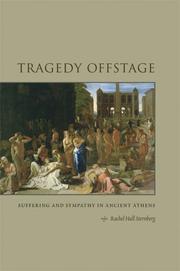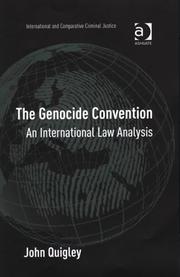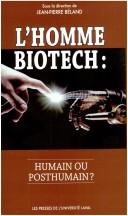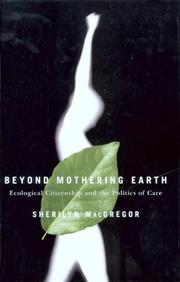| Listing 1 - 10 of 23 | << page >> |
Sort by
|
Book
ISBN: 207057184X Year: 2006 Publisher: Paris : ©2006 Giboulées-Gallimard jeunesse,
Abstract | Keywords | Export | Availability | Bookmark
 Loading...
Loading...Choose an application
- Reference Manager
- EndNote
- RefWorks (Direct export to RefWorks)
Humanité --- Philosophie
Periodical
Year: 2006 Publisher: Santiago : Universidad Tecnológica Metropolitana,
Abstract | Keywords | Export | Availability | Bookmark
 Loading...
Loading...Choose an application
- Reference Manager
- EndNote
- RefWorks (Direct export to RefWorks)
Humanity --- Education --- Humanité (Morale)
Book
ISBN: 9782296002951 2296002951 Year: 2006 Publisher: Paris Harmattan
Abstract | Keywords | Export | Availability | Bookmark
 Loading...
Loading...Choose an application
- Reference Manager
- EndNote
- RefWorks (Direct export to RefWorks)

ISBN: 0292714165 9780292714168 Year: 2006 Publisher: Austin University of Texas Press
Abstract | Keywords | Export | Availability | Bookmark
 Loading...
Loading...Choose an application
- Reference Manager
- EndNote
- RefWorks (Direct export to RefWorks)
Humane ideals were central to the image Athenians had of themselves and their city during the classical period. Tragic plays, which formed a part of civic education, often promoted pity and compassion. But it is less clear to what extent Athenians embraced such ideals in daily life. How were they expected to respond, emotionally and pragmatically, to the suffering of other people? Under what circumstances? At what risk to themselves? In this book, Rachel Hall Sternberg draws on evidence from Greek oratory and historiography of the fifth and fourth centuries BCE to study the moral universe of the ancient Athenians: how citizens may have treated one another in times of adversity, when and how they were expected to help. She develops case studies in five spheres of everyday life: home nursing, the ransom of captives, intervention in street crimes, the long-distance transport of sick and wounded soldiers, and slave torture. Her close reading of selected narratives suggests that Athenians embraced high standards for helping behavior--at least toward relatives, friends, and some fellow citizens. Meanwhile, a subtle discourse of moral obligation strengthened the bonds that held Athenian society together, encouraging individuals to bring their personal behavior into line with the ideals of the city-state.
Helping behavior --- Caring --- Comportement d'aide --- Humanité (Morale) --- History --- Histoire --- Athens (Greece) --- Athènes (Grèce) --- Moral conditions --- History. --- Conditions morales --- Humanité (Morale) --- Athènes (Grèce)
Book
ISSN: 11585609 ISBN: 2743615192 9782743615192 Year: 2006 Volume: 533 533 Publisher: Paris Payot & Rivages
Abstract | Keywords | Export | Availability | Bookmark
 Loading...
Loading...Choose an application
- Reference Manager
- EndNote
- RefWorks (Direct export to RefWorks)
Philosophical anthropology --- Metaphysics --- Philosophy and psychology of culture --- Animalité --- Anthropologie --- Humanité
Book
ISBN: 9782908199437 2908199432 Year: 2006 Volume: 11 Publisher: Paris : Société de législation comparée,
Abstract | Keywords | Export | Availability | Bookmark
 Loading...
Loading...Choose an application
- Reference Manager
- EndNote
- RefWorks (Direct export to RefWorks)

ISBN: 0754647307 9780754647300 Year: 2006 Publisher: Aldershot Ashgate
Abstract | Keywords | Export | Availability | Bookmark
 Loading...
Loading...Choose an application
- Reference Manager
- EndNote
- RefWorks (Direct export to RefWorks)
The Genocide Convention explores the question of whether the law and genocide law in particular can prevent mass atrocities. The volume explains how genocide came to be accepted as a legal norm and analyzes the intent required for this categorization. The work also discusses individual suits against states for genocide and, finally, explores the utility of genocide as a legal concept.
Law of armed conflicts. Humanitarian law --- Genocide --- Crimes against humanity --- Génocide --- Crime contre l'humanité --- Droit humanitaire international

ISBN: 2763783481 9782763783482 Year: 2006 Publisher: Sainte-Foy (Québec, Canada) : Presses de l'Université Laval,
Abstract | Keywords | Export | Availability | Bookmark
 Loading...
Loading...Choose an application
- Reference Manager
- EndNote
- RefWorks (Direct export to RefWorks)
Les récentes percées en biotechnologie ont soulevé plusieurs questions en éthique : transgénèse des animaux et des plantes, thérapie génique, clonage, création de cellules souches, création des chimères humain-animal, etc. On peut imaginer que, dans un avenir rapproché, on tente des modifications plus ambitieuses. Un homme doté de l'odorat du chien, d'une protection contre les radiations semblable à celle des bactéries, de la capacité d'hiberner comme l'ours. En supposant que les obstacles techniques soient un jour surmontés, l'homme disposerait alors de la maîtrise de son évolution et n'aurait de limite à son imagination que les garde-fous législatifs qu'il pourrait lui opposer. Il pourrait manipuler un embryon humain pour faire naître quelqu'un de beaucoup plus puissant. Ainsi, le futur sera-t-il peuplé de super-humains génétiquement modifiés ? L'Homme biotech est-il l'avenir de l'homme ? Il soulève dans l'esprit de certaines personnes un dilemme humain ou posthumain ? Pour d'autres, l'enjeu éthique se formule ainsi : peut-on transformer cet humain (ouverture post-humaniste) tout en sauvegardant la dignité humaine ? C'est pour susciter la réflexion sur la problématique éthique internationale " L'Homme biotech : humain ou posthumain ? " qu'un colloque interdisciplinaire et interuniversitaire s'est tenu lors du 73e congrès annuel de l'Association francophone pour le savoir (ACFAS), à l'Université du Québec à Chicoutimi en 2005. Le recueil reprend les textes rédigés à la suite des exposés et échanges par les conférenciers.
Bioethics --- Bioéthique --- Congresses --- Congrès --- Bioéthique --- Congrès --- Biotechnologie --- Humanite --- Bioethique --- Aspect social --- 1990 --- -Bioethics --- -Biotechnologie --- 1990-
Book
ISBN: 340732071X Year: 2006 Publisher: Weinheim : Beltz,
Abstract | Keywords | Export | Availability | Bookmark
 Loading...
Loading...Choose an application
- Reference Manager
- EndNote
- RefWorks (Direct export to RefWorks)
Alternative education. --- Alternative schools. --- Historische en vergelijkende pedagogiek. --- Geheeb, Paul. --- Geheeb-Cassirer, Edith, --- Odenwaldschule. --- École d'humanité.

ISBN: 077481201X 0774812028 9780774812016 9780774812023 Year: 2006 Publisher: Vancouver UBC press
Abstract | Keywords | Export | Availability | Bookmark
 Loading...
Loading...Choose an application
- Reference Manager
- EndNote
- RefWorks (Direct export to RefWorks)
Caring --- Ecofeminism --- Environmentalism --- Human ecology --- Women and the environment --- Ecofeminisme --- Ecologisme --- Femmes et environnement --- Humanite (Morale) --- Political aspects
| Listing 1 - 10 of 23 | << page >> |
Sort by
|

 Search
Search Feedback
Feedback About UniCat
About UniCat  Help
Help News
News